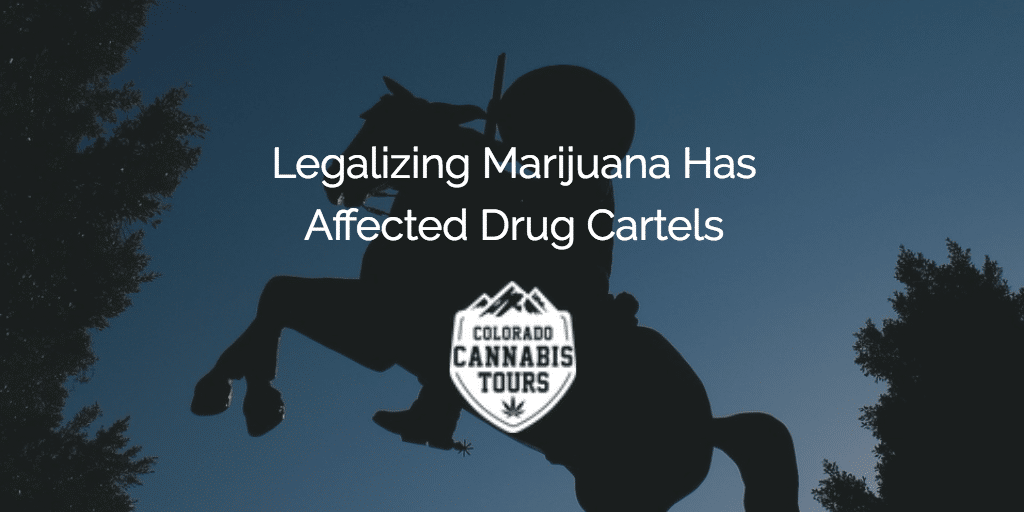
As more and more states begin to legalize the adult use of marijuana, for recreational purposes.
The economic effects, of adding weed sales to the “legal economy,” are making its LOUD voice become very clear, from the will of the people.
States have experienced a large upward shift in revenue from taxing all legal activities, associated with marijuana sales, and are cutting costs from not having to enforce hemp related laws.
However, the effects of legalizing marijuana go way beyond state government revenue.
Legalizing marijuana has affected the drug trade, legal and illegal, in unusual and unexpected ways.
BOOM In Tax Revenue
In 2016 the state of Colorado posted over $1 billion in legal cannabis sales.
The state government has collected over $150 million in tax revenue from those sales and allocated $40 million towards the development of the Colorado school system.
Other States (California, Maine, Massachusetts and a few others) viewed the increased revenues as a success and have voted to legalize marijuana for recreational use.
There is ample evidence to demonstrate that taxing legal marijuana is boosting tax revenue, but the question remains, how is the legalization of marijuana affecting the drug trade?
Drugs Crossing The Border
The seizure of illegal marijuana, at the Southwestern border of the United States, has decreased significantly as states begin the legalize marijuana for recreational use.
The amount of illegal marijuana seized at the Southwestern border decrease from almost 4 million pounds, in 2009, to about 1.5 million pounds in 2015.
The risk of transporting weed across the border is no longer worth it for the Mexican drug cartels.
When marijuana was illegal in all 50 U.S. States, the drug cartel could assert their authority and hold a monopoly on weed sales in a large geographical area allowing the cartels to overcharge.
Now that a large percentage, of American states can legally grow marijuana, the cartels have some fierce competition to deal with.
U.S. marijuana growers do not have to bear the costs of transporting weed across the border and do not have to worry about their weed being seized if they are caught.
This allows U.S. growers to charge a LOT less for the sale of their product, which is typically at a higher quality than the Mexican cartels can offer.
If states continue to legalize marijuana use, then Mexican cartels will be effectively priced out marijuana sales.
Why The Mexican Cartel’s Are Shifting Their Focus To Other Drugs?
While Mexican cartels are hesitant to give up on the cash crop, there has been a shift to pushing other drugs across the border.
The cartels are applying the antics of the marijuana drug trade, to other drugs, such as methamphetamine and cocaine.
Drugs, such as cocaine, are easy to transport across the border, because they are lightweight and have a higher profit to weight ratio, then marijuana.
The cartels stand to receive a much bigger reward by switching to sales of another drug, then trying to compete in the “lowering pricing” of the legal U.S. market.
In a lot of cases, the cartels already have a system in place and just need to alter their growing capabilities in order to break into the cocaine or heroin market.
Border patrol has seen an increase in the amount of methamphetamine and cocaine confiscated at the border since the legalization of recreational marijuana.
The question remains, by legalizing marijuana, are states inviting more ‘dangerous’ drugs to enter the U.S. marketplace?
Where there is demand, will there always be a supply?
Is The New Black Market Setting Up Shop, North Of The Border?
Another way drug cartels are attempting to establish themselves in the new marijuana market is by growing hemp in states that have legalized marijuana.
With the legalization of marijuana, it is much easier for the cartels to buy out a warehouse and start growing weed.
They can then sell their product on the black market at a cheaper price then legal distributors, because they can avoid state taxes.
This could result in states having to increase funding to enforce marijuana regulation and therefore negate the additional funds accrued from taxing the sales of the drug.
Until cannabis is cheaper than a bag a tea, there seems like there might always be a “hidden” black market to deal with.
However, if weed were as cheap as tea, what would happen to the quality and variety?
Would this still be a “lucrative” enough of a market to have an ENORMOUS community, as we have now?
Imo, if weed were THAT cheap, there would be another EXPLOSION of cannabis interest.
By lowering the “bar of entry” into the cannabis market, there could be ALL KINDS of unique opportunities to “shape and mold” cannabis into newer and more unique products.
Other Options
There are a few other ways that cartels could attempt to stay relevant in the American market.
First, they could specialize in the production oil based weed products.
This would create a unique product that is not currently legal within the states who have legalized marijuana.
Oil based marijuana is easier to transport across the border due to its liquidity.
Another option is for the United States and Mexico to take the issue to the international stage and attempt to get the transportation of marijuana across country lines approved by the UN.
This would allow for the U.S. to heavily tax imported Mexican weed, but also reduce the risk of illegally transporting weed across the border.
Cartels could venture into the legal realm, of both economies and compete on a competitive market with U.S. growers.
While states who have legalized marijuana are currently experiencing huge tax returns, from weed sales, there is little doubt that the drug cartels will start exploring new and innovative ways to remain relevant in the drug trade.
Although, if there was a way to make it MORE profitable, to get and stay legal, would that be enough of an incentive to want to “leave” a life of crime, in the black market?
- What Is CHS? – Cannabis Hyperemesis Syndrome Heal The Mind With Information To Cure The Body Of Dis-Ease - May 17, 2021
- Marijuana’s History Of Hate - March 27, 2017
- Legalizing Marijuana Has Affected Drug Cartels - March 16, 2017
